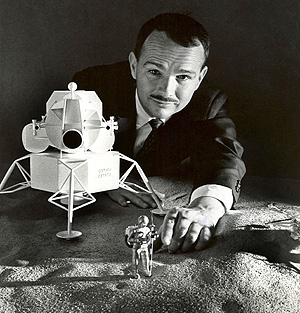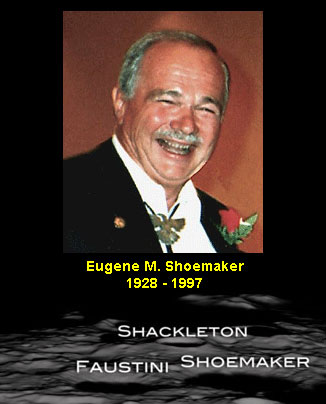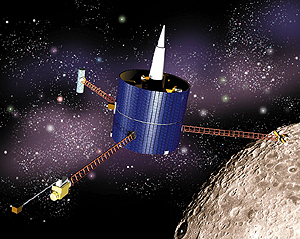
Celestis’s first lunar burial occurred on July 31, 1999. Celestis helped friends of noted planetary geologist Dr. Eugene Shoemaker include a symbolic portion of his remains on the NASA Lunar Prospector mission launched January 6, 1998.
The spacecraft impacted the lunar surface inside a permanently shadowed crater near the south lunar pole, creating a permanent monument to Dr. Shoemaker. Impact occurred at 4:52 a.m. CDT (9:52 a.m. GMT), July 31, 1999.

Dr. Shoemaker, a pioneer in the exploration of the solar system, had longed to go to the Moon as an Apollo astronaut and study its geology firsthand. A medical condition diagnosed in the early 1960s prevented him from doing so. Dr. Shoemaker went on to help select and train Apollo astronauts in lunar geology and impact cratering. He also worked on NASA’s Lunar Ranger and Surveyor programs. His achievements in these areas earned him the United States’ highest scientific honor, the National Medal of Science in 1992. He became world-renowned when he, his wife Carolyn, and astronomer David Levy discovered Comet Shoemaker-Levy 9, which impacted the planet Jupiter in July 1994. Quoting from his NASA biography, “His many honors included the Wetherill Medal of the Franklin Institute in 1965, election to membership in the National Academy of Sciences in 1980, the Gilbert Award of the Geological Society of America in 1983 and the Kuiper Prize of the American Astronomical Society in 1984.”

Lunar Prospector was one of the most productive, least expensive space missions in history. Part of NASA’s Discovery Program, Lunar Prospector served as a follow-on to the successful Clementine mission. In fact, Dr. Shoemaker served on the Clementine science team. In 1994, the Clementine spacecraft orbiting the Moon made observations that indicated the presence of water ice on the lunar surface. On March 5, 1998, it was announced that Lunar Prospector had also found evidence suggesting the presence of water ice at both lunar poles.
The presence of water ice on the Moon would facilitate future attempts at lunar colonization. How fitting that, via the first lunar burial, Dr. Eugene Shoemaker participated in one last experiment — an experiment that could benefit our future in space.
Learn more about the Celestis Luna Service.
